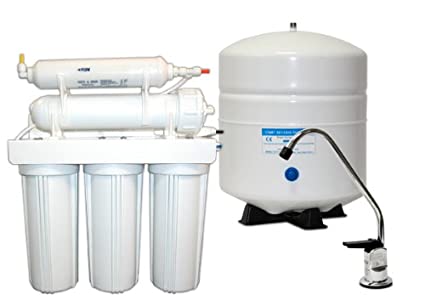conpewter
Well-Known Member
So I'm finally getting my setup back up and running at the new house. We installed a water softener here since the well water has pretty bad iron. It is dissolved so the water comes out clear, but then will precipitate iron oxide out after it sits.
Of course I don't want to use softened water to brew with, but I also can't use the water as it is out of the non-softened tap. I could get a reverse osmosis system but would prefer not to go to that expense plus I don't like building water back up as it is hard to get bicarbonate and other minerals dissolved in water at room temp/pressure.
I've seen whole-house greensand filters that take out dissolved iron, and wouldn't mind a small version of that, even if I can just build my own and "regenerate" the media manually as needed.
I've thought about just running 15 gallons into my HLT the night before, then pump it all through a carbon filter to remove the now precipitated iron and any just make it taste better. - is it bad to precipitate rust in my Stainless HLT? Would 12 hours be enough to oxidize all the iron in 15 gallons of water in an open top keg? Anyone else deal with this problem and have some cool solutions?
Of course I don't want to use softened water to brew with, but I also can't use the water as it is out of the non-softened tap. I could get a reverse osmosis system but would prefer not to go to that expense plus I don't like building water back up as it is hard to get bicarbonate and other minerals dissolved in water at room temp/pressure.
I've seen whole-house greensand filters that take out dissolved iron, and wouldn't mind a small version of that, even if I can just build my own and "regenerate" the media manually as needed.
I've thought about just running 15 gallons into my HLT the night before, then pump it all through a carbon filter to remove the now precipitated iron and any just make it taste better. - is it bad to precipitate rust in my Stainless HLT? Would 12 hours be enough to oxidize all the iron in 15 gallons of water in an open top keg? Anyone else deal with this problem and have some cool solutions?



